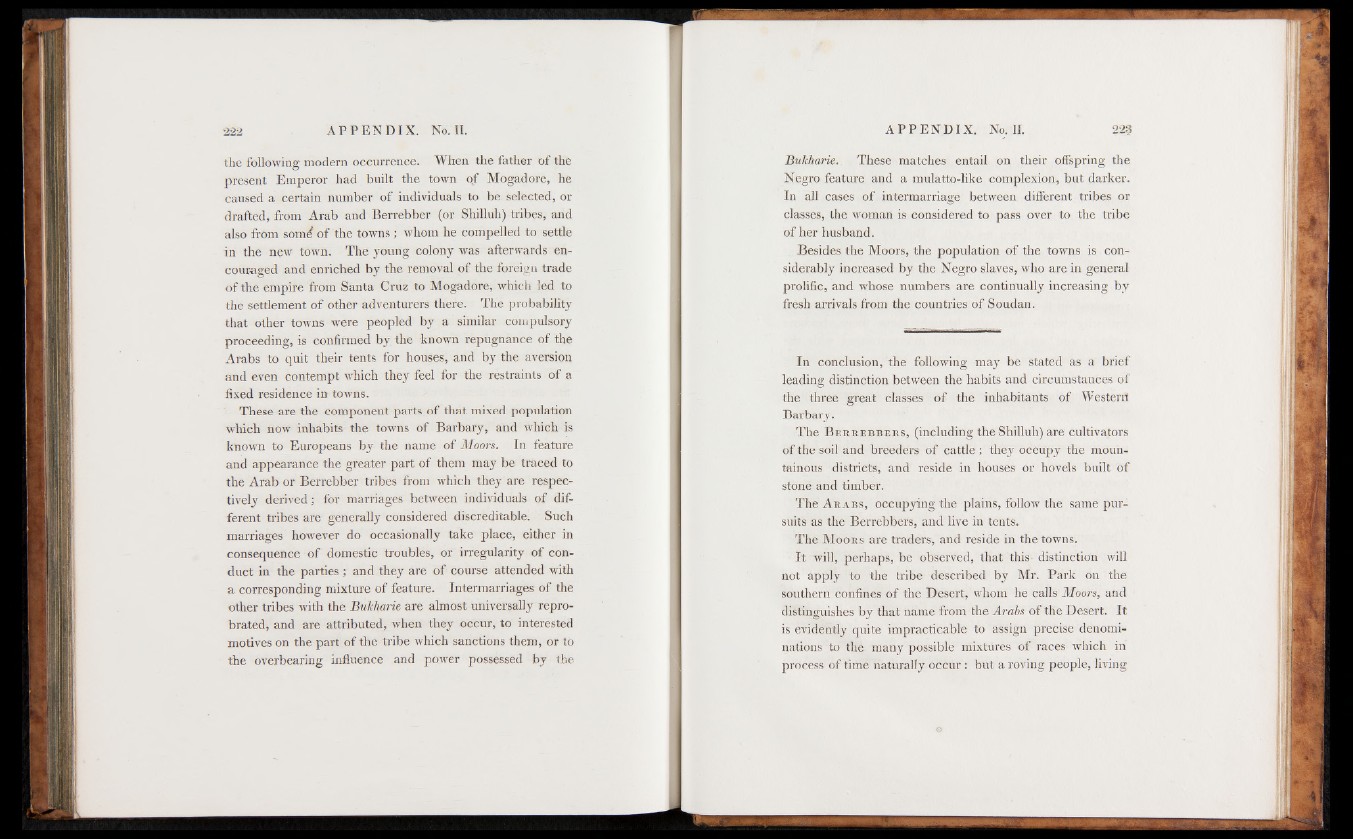
the following modern occurrence. When the father of the
present Emperor had built the town of Mogadore, he
caused a certain number of individuals to be selected, or
drafted, from Arab and Berrebber (or Shilluh) tribes, and
also from sornd of the towns; whom he compelled to settle
in the new town. The young colony was afterwards encouraged
and enriched by the removal of the foreign trade
of the empire from Santa Cruz to Mogadore, which led to
the settlement of other adventurers there. The probability
that other towns were peopled by a similar compulsory
proceeding, is confirmed by the known repugnance of the
Arabs to quit their tents for houses, and by the aversion
and even contempt which they feel for the restraints of a
fixed residence in towns.
These are the component parts of that mixed population
which now inhabits the towns of Barbary, and which is
known to Europeans by the name of Moors. In feature
and appearance the greater part of them may be traced to
the Arab or Berrebber tribes from which they are respectively
derived; for marriages between individuals of different
tribes are generally considered discreditable. Such
marriages however do occasionally take place, either in
consequence of domestic troubles, or irregularity of conduct
in the parties ; and they are of course attended with
a corresponding mixture of feature. Intermarriages of the
other tribes with the Bukharie are almost universally repro-
brated, and are attributed, when they occur, to interested
motives on the part of the tribe which sanctions them, or to
the overbearing influence and power possessed by the
Bukharie. These matches entail on their offspring the
Negro feature and a mulatto-like complexion, but darker.
In all cases of intermarriage between different tribes or
classes, the woman is considered to pass over to the tribe
of her husband.
Besides the Moors, the population of the towns is considerably
increased by the Negro slaves, who are in general
prolific, and whose numbers are continually increasing by
fresh arrivals from the countries of Soudan.
In conclusion, the following may be stated as a brief
leading distinction between the habits and circumstances of
the three great classes of the inhabitants of Western
Barbary.
The B e e r e b b e r s , (including the Shilluh) are cultivators
of the soil and breeders of cattle; they occupy the mountainous
districts, and reside in houses or hovels built of
stone and timber.
The A r a b s , occupying the plains, follow the same pursuits
as the Berrebbers, and live in tents.
The M oors are traders, and reside in the towns.
It will, perhaps, be observed, that this distinction will
not apply to the tribe described by Mr. Park on the
southern confines of the Desert, whom he calls Moors, and
distinguishes by that name from the Arabs of the Desert. It
is evidently quite impracticable to assign precise denominations
to the many possible mixtures of races which in
process of time naturally occur : but a roving people, living